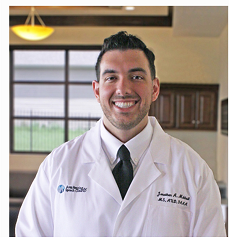Scholars World Congress on
Otology, Rhinology & Laryngology
THEME: "Explore and Emphasize the Innovations of Otorhinolaryngology- ENT"
 24-25 Jun 2024
24-25 Jun 2024  Rome, Italy
Rome, Italy THEME: "Explore and Emphasize the Innovations of Otorhinolaryngology- ENT"
 24-25 Jun 2024
24-25 Jun 2024  Rome, Italy
Rome, Italy 
Wichita State University, United States
Title: Does COVID-19 Exacerbate Pre-existing Hearing Loss?
Time:
Dr. Jonathan Mikhail is
an audiologist from Joplin, Missouri. In 2015, he graduated from The University
of Wisconsin-Stout with his Master’s in Technical and Professional Communication;
in 2018, he obtained his Doctor of Audiology from Wichita State University; in
2023, he received his Doctor of Education in Health Sciences from A.T. Still University.
During his studies, his research has focused on communication for individuals
with hearing loss, the number of courses focused on communication offered within
current audiology programs in the United States, and the effects of COVID-19 on
patients with pre-existing hearing loss.
This study aimed to
determine if COVID-19 considerably affects patients with pre-existing hearing
loss and occurred over one calendar year. The participants in this study were between
the ages of 50 and 64 who had been diagnosed with hearing loss between March
15, 2019, and March 15, 2020, and contracted COVID-19 within six months of
March 15, 2020. The participant’s hearing was tested to monitor the regression
of hearing loss following a diagnosis of COVID-19.
Using a paired T-test to
compare puretone averages (PTAs) of 500Hz, 1000Hz, and 2000Hz, the data
suggested that participants' PTAs worsened after the contraction of COVID-19 in
both the right and left ears (p-value = < .01). Word recognition scores
(WRSs), however, did not decrease when a paired T-test was performed. The
researcher used a two-way ANOVA test to evaluate if gender affected PTAs and
suggested that gender did not affect the PTAs substantially. Since PTAs did
show a clinically significant decrease, it was anticipated that speech
reception thresholds (SRTs) would also have worsened, and a paired T-test
signified that the SRTs did regress.
While the study's main
objective was to establish a viable framework for more longitudinal studies
associated with COVID-19, this study also aimed to provide clinicians (PCPs,
AuDs, and ENTs) with further evidence of how COVID-19 can affect peripheral
hearing sensitivity. By understanding how viral infections disrupt the
auditory system, audiologists and physicians can better
serve patients with hearing impairments and provide a better pathway to audiological
or medical interventions.